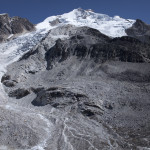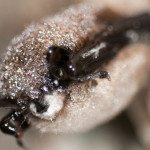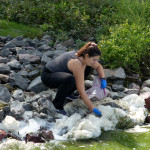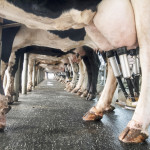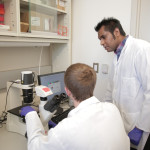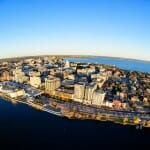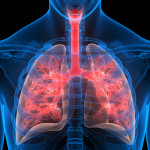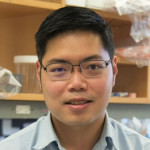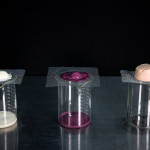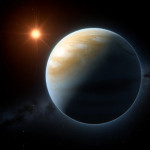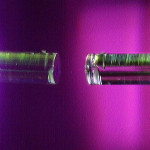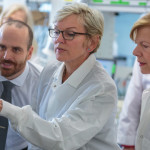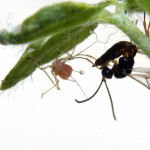Category Science & Technology
Nasal spray flu vaccine candidate based on UW–Madison technology shows promise when administered alongside high dose annual shot
A unique influenza vaccine candidate that’s inhaled rather than injected is safe and could bolster protection against seasonal and pandemic influenza for people vulnerable to severe disease when they receive it in addition to the annual flu shot. Read More
Retreat of tropical glaciers foreshadows changing climate’s effect on global ice
This research points to a single likely conclusion: The world's tropical glaciers, more than 99% of which are located in the Andes, are the first to shrink beyond what's been seen in the recent geologic past. Read More
A stealth fungus has decimated North American bats but scientists may be a step closer to treating white-nose syndrome
Scientists have discovered how an invasive fungus that colonizes the skin of hibernating bats gains entry and covertly hijacks cells, taking an important step toward treatment of white-nose syndrome. Read More
Lake and river foams study reveals high PFAS levels, even though underlying water may be less contaminated
Thirty-six different kinds of PFAS compounds were analyzed in samples of both the foams and water surface microlayers of 43 Wisconsin rivers and lakes. Read More
Raw milk is risky, but airborne transmission of H5N1 from cow’s milk is inefficient in mammals.
New research suggests that exposure to raw milk infected with the currently circulating virus poses a real risk of infecting humans, but that the virus may not spread very far or quickly to others. Read More
Serendipity reveals new method to fight cancer with T cells
Cells treated with “metabolic priming” retained their stem cell-like qualities, thus enhancing their ability to kill cancer cells, transform into durable memory cells, and survive longer in the body. Read More
UW–Madison leading new research collaboration aimed at treating lung scarring diseases
An interdisciplinary group of researchers will will investigate the biological processes that promote lung scarring. With the aid of artificial intelligence and advanced 3D modeling, they will also develop and refine new imaging techniques and drug delivery systems that could aid in halting its progression. Read More
Wolves reintroduced to Isle Royale temporarily affect other carnivores, humans have influence as well
While many studies have been conducted to understand the effects of a carnivore reintroduction on their prey, less well studied is the effect of the reintroduction on other carnivores in the same food web, in this case foxes and martens. Read More
UW biochemist Ci Ji Lim named Pew Scholar
Lim is the ninth UW–Madison researcher selected to be a Pew biomedical scholar and is one of 22 early-career scientists to receive the honor in 2024. His research focuses on telomeres, the protective at the ends of chromosomes Read More
The buzz about cicadas
Curious nature lovers crowded to Cicadapalooza, held on June 8 in Lake Geneva, Wisconsin, to learn all about the noisy bugs. Read More
Watery planets orbiting dead stars may be good candidates for studying life — if they can survive long enough
The small footprint and dim light of white dwarfs, remnants of stars that have burned through their fuel, may make excellent backdrops for studying planets with enough water to harbor life. Read More
Wind from black holes may influence development of surrounding galaxies
The discovery helps illuminate the way active black holes can continuously shape their galaxies by spurring on or snuffing out the development of new stars. Read More
Bringing delight by investigating a no-melt ice cream
Cameron Wicks, a PhD student in the University of Wisconsin–Madison’s Department of Food Science, is working on a new technology that adds naturally occurring compounds to ice cream to prevent it from wreaking summertime havoc. Read More
Small, cool and sulfurous exoplanet may help write recipe for planetary formation
UW–Madison astronomers and their collaborators hope the discovery of one exoplanet's sulfurous atmosphere will advance our understanding of how planets forms. Read More
UW–Madison scientists develop most sensitive way to observe single molecules
The new method could have implications for pursuits as varied as drug discovery and the development of advanced materials. Read More
Abandoned farmlands could play a role in fighting climate change. A new study shows exactly where they are.
A research team used machine learning to map nearly 30 million acres of United States cropland abandoned since the 1980s, creating a tool that could guide decisions about how to balance production of energy and food. Read More
UW–Madison engineers mark 3D printing milestone in race to in-space manufacturing
Researchers at the University of Wisconsin–Madison have taken a step toward in-space manufacturing of replacement electronic components by successfully 3D printing RAM device units in zero gravity for the first time. Read More
Stability relies on dispersal in parasitic relationship between aphids and wasps.
Researchers combined experiments with mathematical modeling to learn that dispersal of organisms involved in parasitic relationships through space can play an important role in balancing the effects of both ecology and evolution on those relationships. Read More


